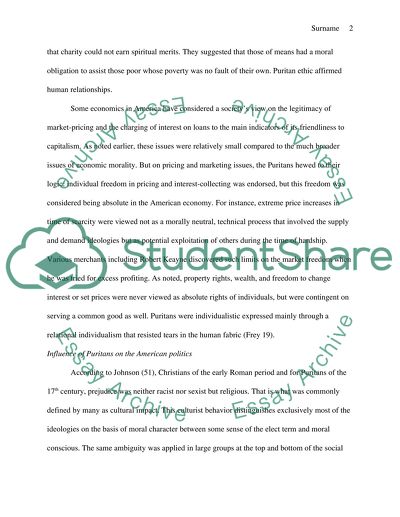Cite this document
(“In what ways did the Puritans influence America in economics politics Essay”, n.d.)
Retrieved from https://studentshare.org/environmental-studies/1422929-in-what-ways-did-the-puritans-influence-america-in
Retrieved from https://studentshare.org/environmental-studies/1422929-in-what-ways-did-the-puritans-influence-america-in
(In What Ways Did the Puritans Influence America in Economics Politics Essay)
https://studentshare.org/environmental-studies/1422929-in-what-ways-did-the-puritans-influence-america-in.
https://studentshare.org/environmental-studies/1422929-in-what-ways-did-the-puritans-influence-america-in.
“In What Ways Did the Puritans Influence America in Economics Politics Essay”, n.d. https://studentshare.org/environmental-studies/1422929-in-what-ways-did-the-puritans-influence-america-in.


